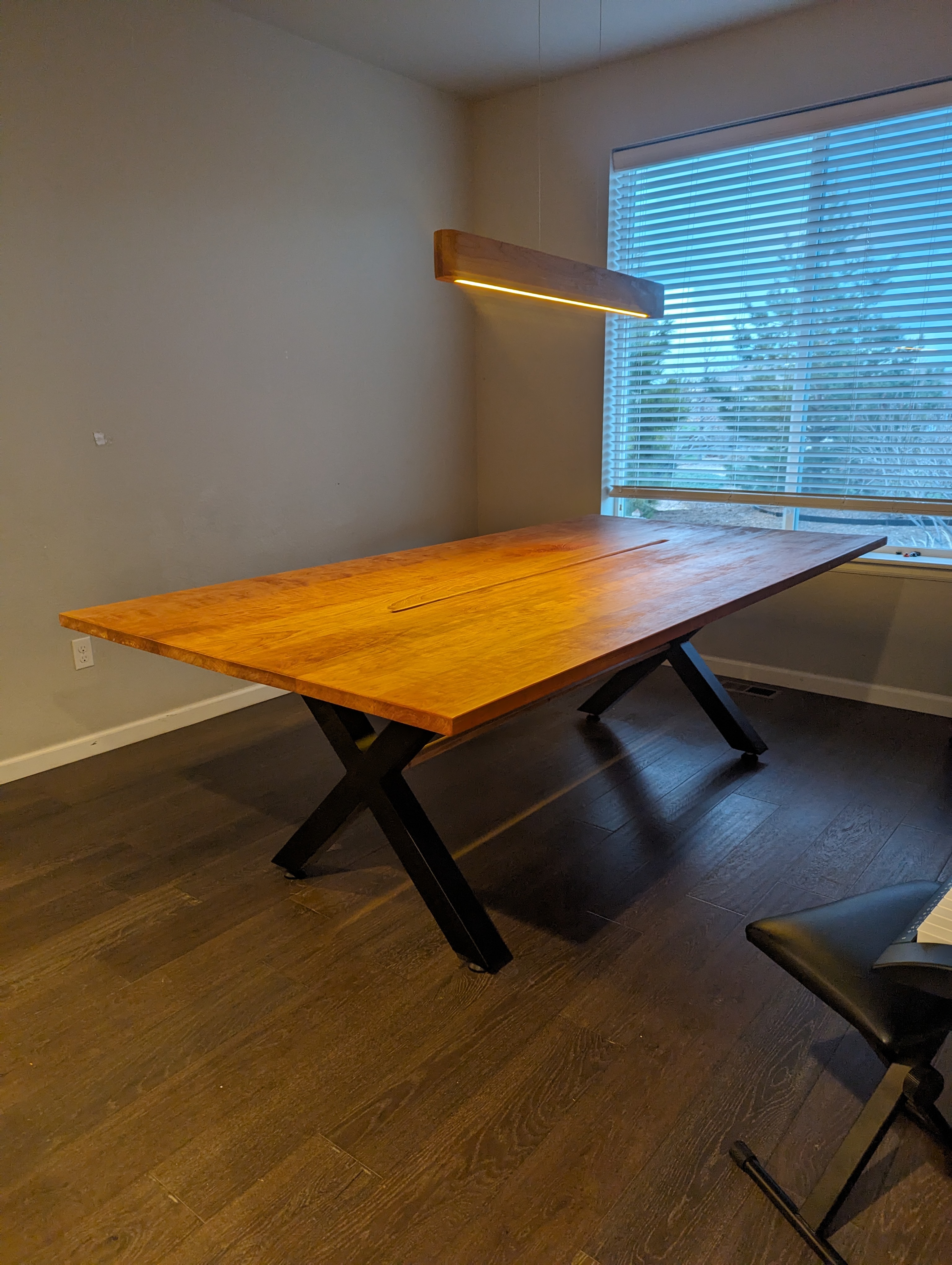Why I Spend Time Woodworking

I don’t think it is particularly rare for programmers to gravitate toward hobbies that manifest in meat space. So much of our time is spent creating things that are ethereal, and never exist in the real world. You can’t touch them, and if a hard drive dies at some point, they may just not exist anymore. Having a product that you can show your family, and hold in your hands offers a different kind of reward.
I know a lot of programmers that spend their time creating music, or hardware devices, or lifting weights, or fishing and hunting. Maybe you’re a woodworker like me.
I wanted to explain my reasons, maybe they are the same or similar to your reasons. Maybe not.

Where It Started
I didn’t grow up with a computer in my house. In fact, I got my first computer when I was in college. So, my hobbies growing up were entirely offline (in fact, the Internet didnt exist for a big part of my childhood.)
In my house, we grew up watching shows like This Old House, and New Yankee Workshop. Even though no one in my family was in the trades, my mother passed on an appreciation to us for creating things. Looking back, I can see how many people do not grow up with the imagination that if you want something and it doesn’t exist, you can just make it.
I think if the Internet existed back then, or even if we had a computer, I could have manifested that creative drive into pixels. I am thankful in a lot of ways that it didn’t. I think some people can be fulfilled with a lot of screen time, but it doesn’t work for me.
Why I Think It Helps
If you aren’t a programmer or a woodworker, it might seem like they have little in common. I think to the random person on the street, if you told them to draw an image of a woodworker, and draw a picture of a programmer, those pictures would look very different.
But I think the two skills have a lot in common. In both, building something complex requires breaking the end product (furniture, or application) down into it’s smaller or smallest constituent parts. In programming, you don’t just create a form. You create a persistence model, then you create HTML, and you create controllers to handle the form, and validators, etc. In woodworking, a lot of your time is spent creating templates, jigs, and fixtures.

Jigs, fixtures, and templates are just like the frameworks and libraries we create and use in programming. You run into cuts that have to be repeated. You know those validation libraries you bring into every project? Templates are just like that. Sometimes you build one and keep it around for years before you need it again. The commonality is that case is you don’t want to write the same code twice.
Jigs and fixtures are devices you design and build to help you position your wood in order to make the cuts you need to make. They hold the wood in place, usually at an angle or in a position relative to a joining piece of wood.
I think of these like frameworks - we write code that helps us write code.
There are constraints to work around in both. You have sheet goods that come in fixed sizes. You can’t make a cabinet carcass that is 13 feet long, because plywood comes in 8 foot sheets. Sometimes the constraints are the tooling you have access to. Just like you cannot create ChatGPT in your home lab because you dont have 40,000 GPUs, sometimes your jointer is only 6 inches wide. Or you would need a domino cutter (which is crazy-expensive.) So, you figure it out. You solve the problems given the contstraints you have.
The answer in programming is always “yes”. If you give me enough time, and enough money, we can do anything that doesnt violate immutable laws (like the speeed of light.)
In woodworking, you get caught by physical contstraints more often. But it is the same type of problem solving.
Fundementally, either skill requires:
- A confident attitude. You should always assume you can do it.
- Understanding your tools. Know what they can and cannot do, and how to work around those shortcomings.
- An ability to break problems down into small subtasks.
- Flexibility. Sometimes you hit roadblocks.

For My Health
I think the obvious benefit to me in woodworking is honing the logical skills to break down and solve problems. Both start with the desired result in mind, and force me to work backward. Woodworking also forces me to ideate, plan, work, and follow through. But one other benefit to me is for mental health. Getting away from a screen and moving objects helps be balance myself. I am happier fighting a difficult cut than arguing online.
How About You?
Do you have an offline hobby? Let me hear about it. I am on X @sprsmpl
